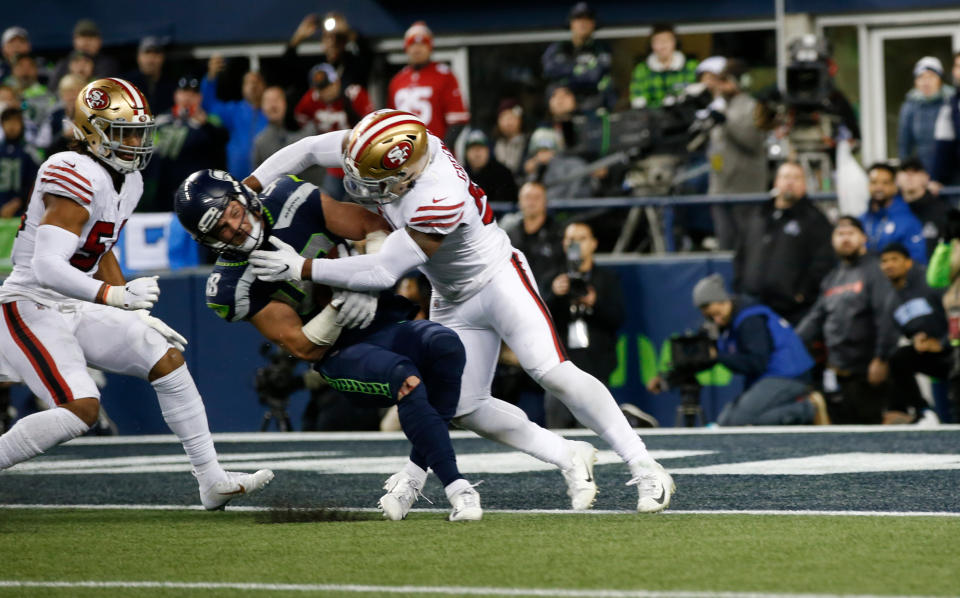Report: NFL looking into flex scheduling for 'Monday Night Football'
“Sunday Night Football” rarely provides a bad matchup.
The same can’t be said for “Monday Night Football,” which has long ceded its status as the league’s premier time slot to its Sunday counterpart.
According to a report, the NFL is looking into a “Monday Night Football” upgrade.
NFL asked teams about more flex scheduling: Report
The Sports Business Journal reports that the NFL is formally seeking feedback from teams on the idea of flex scheduling for “Monday Night Football.”
The inquiry arrived after ESPN stated its desire to incorporate flex scheduling for the broadcast as part of its next deal with the league. ESPN’s current deal expires in 2021, a year before the league’s other media rights contracts expire.
Per the report:
Before the holidays, league executives posed an open-ended question to teams: How much flexing could they handle? How much advance notice would teams need if broadcasters wanted to switch a Sunday afternoon game to “Monday Night Football?” What if every week of the season were opened to flexing?
Flex scheduling a win for home viewers
The reasons for the ask are obvious.
Flex scheduling allowed for NBC to showcase Week 17’s high-stakes Seattle Seahawks-San Francisco 49ers thriller that saw the 49ers clinch the top seed in the NFC and their path that ultimately ended in a Super Bowl berth.
It’s a win for NBC. It’s a win for the NFL. It’s a win for fans at home.

‘Monday Night Football’ is often a dud
Meanwhile, “Monday Night Football” viewers were stuck with a largely meaningless Week 15 Indianapolis Colts-New Orleans Saints matchup that was scheduled before the news of Andrew Luck’s surprise preseason retirement and most certainly was not appointment television.
“Monday Night Football” often isn’t.
But the reasons flex scheduling hasn’t been implemented for “Monday Night Football” are also obvious.
Downside of flexing
Flipping a Sunday afternoon game with a Sunday evening game is one thing in terms of logistics. Swapping a Sunday game for a Monday game is an entirely different challenge, especially when considering fans who schedule their lives around attending a game.
Responses to the inquiry from teams varied widely, according to the report. Small-market teams were more willing to take the downside of a “Monday Night Football” flex schedule in exchange for the upside of prime-time TV exposure.
Meanwhile, teams on the West Coast were understandably more wary because of time-zone challenges, according to the report.
ESPN is reportedly sweetening the pot for its ask by offering to take “Monday Night Football” off of cable and back on the ABC airwaves if it gets flex scheduling in return.
Do the pros outweigh the cons?
Flex scheduling is a no-brainer winner for broadcast interests and home viewers, who benefit from seeing the best possible matchups when no other games are on.
The question then becomes: does that upside trump the concerns of fans attending games and the teams themselves?
With the massive stakes attached to broadcast rights, here’s guessing that the answer is yes.
More from Yahoo Sports:

 Yahoo Finance
Yahoo Finance 